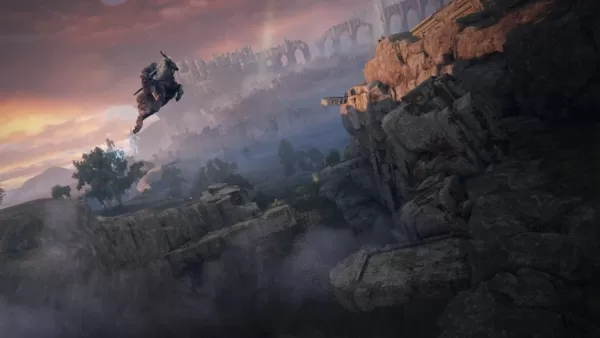Open-world games were once synonymous with checklists, with maps cluttered by markers and mini-maps dictating every move, turning objectives into chores rather than adventures. However, Elden Ring changed the game. FromSoftware tossed aside the conventional rulebook, eliminating hand-holding and granting players a rare commodity: true freedom.
In collaboration with Eneba, we delve into how Elden Ring has transformed the genre and why it's worth your admiration.
A World That Doesn’t Beg for Your Attention
Traditional open-world games often vie for your constant focus, bombarding you with reminders of where to go, what to do, and why it matters. Elden Ring takes a different approach—it whispers. It unveils a vast, enigmatic world and empowers you to unravel its mysteries on your own terms.
There are no intrusive UI elements clamoring for your attention; instead, curiosity becomes your compass. If something on the horizon piques your interest, venture forth. You might stumble upon a concealed dungeon, a formidable weapon, or a grotesque boss eager to challenge you.
The absence of level scaling adds to the experience. The world remains static, forcing you to adapt. If a region proves too daunting, you can return later—or not. No one prevents you from attempting to battle a dragon at level five with a broken sword, though the outcome might be predictably fiery.
It's never too late to explore the Lands Between, especially when you can snag an Elden Ring Steam key at Eneba for less than you might expect.
Exploration Feels Like Discovery, Not a Checklist
In many open-world games, exploration often devolves into a race from one map marker to the next, reducing the experience to a series of errands. Elden Ring turns this notion on its head.
There's no quest log dictating your every move. NPCs deliver cryptic messages, distant landmarks appear without explanation, and the game never pauses to clarify itself.
 This might seem daunting, but it's what makes exploration so gratifying. Every cave, ruin, and fortress feels like your personal discovery. No one instructed you to venture there—you did so out of sheer curiosity.
This might seem daunting, but it's what makes exploration so gratifying. Every cave, ruin, and fortress feels like your personal discovery. No one instructed you to venture there—you did so out of sheer curiosity.
Moreover, unlike games where loot feels like a random drop, Elden Ring ensures every reward is meaningful. Discovering a hidden cave could lead to acquiring a game-changing weapon or a spell capable of summoning a literal meteor storm.
The Joy of Getting Lost (and Surviving)
In most games, getting lost is seen as a setback. In Elden Ring, it's a delightful part of the journey. You might take a wrong turn and find yourself in a poison swamp (a staple of FromSoftware games). Or you could wander into what seems like a tranquil village, only to be ambushed by grotesque creatures. These moments breathe life into the world.
The game doesn't coddle you, but it does scatter clues throughout. A statue might hint at an underground treasure, while a cryptic NPC could suggest the presence of a hidden boss. If you're attentive, the world subtly guides you without forcing a predetermined path.
Open-World Games Will Never Be the Same?
Elden Ring has set a new standard. FromSoftware demonstrated that players don't need incessant guidance to enjoy an open world; they crave mystery, challenge, and the exhilaration of discovery. Hopefully, other developers will take heed.
If you're eager to immerse yourself in a world that not only encourages but demands exploration, digital marketplaces like Eneba offer incredible deals on gaming essentials. Whether it's Elden Ring or other must-play titles, your next adventure is just a few clicks away.







